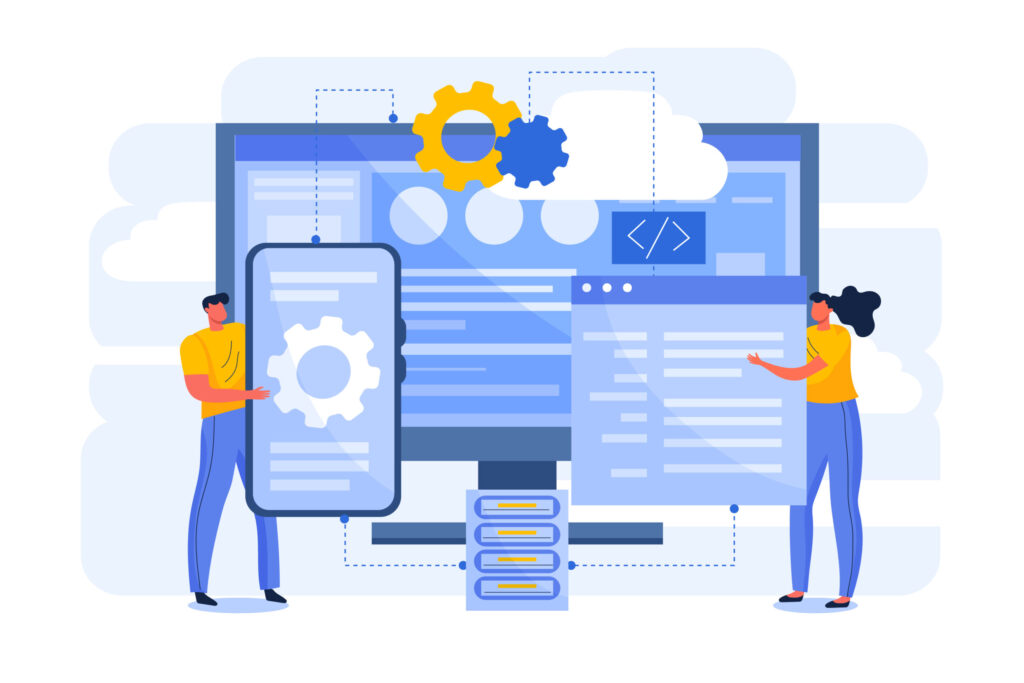Do you ever feel like your company is running on chaos instead of a streamlined system? Are you tired of trying to manage everything manually and feeling overwhelmed by the constant disorganization? Trust me, I’ve been there too. But fear not, there is a solution – an operating system for your company.
In this article, we’ll discuss five key reasons why implementing an operating system in your company can greatly improve efficiency and productivity. We’ll also dive into how to choose the best one for your specific needs and goals. As someone who has witnessed firsthand the benefits of using an operating system in my own business, I am excited to share my expertise with you. So let’s get started and see how this simple tool can revolutionize the way your company operates!
So, company operating system?
1. Streamline Processes and Increase Efficiency:
An operating system acts as the backbone of your company, providing a structured framework for all operations to run smoothly. By implementing an efficient operating system, you can streamline processes and eliminate unnecessary steps, saving time and resources.
2. Improve Communication and Collaboration:
With an operating system in place, communication between team members becomes more organized and streamlined. This allows for better coordination on projects and tasks, leading to improved collaboration among employees.
3. Enhance Decision-Making:
Having a clear structure in place through an operating system can help leaders make informed decisions based on data rather than relying on guesswork or intuition. With access to real-time information about various aspects of the business, leaders can make strategic decisions that drive growth and success.
4. Ensure Consistency:
An effective operating system ensures consistency across all departments within a company. This means that regardless of who is handling a particular task or project, the same procedures will be followed, resulting in consistent outcomes.
5. Scalability for Growth:
As businesses grow and evolve, their needs change too. An operating system provides scalability by allowing companies to adapt their processes without disrupting daily operations or causing confusion among employees.
Choosing the best operating system for your company depends on factors such as your industry, size of the organization, budget constraints, and specific needs of your business processes. It’s important to thoroughly research different options before making a decision to ensure it aligns with your goals and objectives.
Understanding the Importance of an Operating System for Your Company
An operating system (OS) serves as the silent backbone of any business’s technology. It’s like a conductor leading an orchestra, ensuring that all components work in harmony. Every time you click on an application or save a document, the OS is hard at work behind the scenes. It manages hardware resources, allowing computers to communicate effectively with printers, scanners, and networks. Without a reliable operating system in place, tasks can slow down or even come to a halt entirely—imagine trying to run your favorite game without the right software; it simply won’t happen.
Moreover, having an appropriate operating system enhances security for sensitive company data. A robust OS includes built-in features that protect against viruses and malware threats while enabling regular updates to fend off new vulnerabilities. This creates a safe environment for employees to perform their tasks confidently. Additionally, many modern operating systems support cloud services and collaborative tools which streamline workflows across teams regardless of location. By investing time in choosing the right OS tailored for specific business needs—for instance:
- Ease of use
- Compatibility with existing applications
- Support options available
you’re not just setting up technology; you’re paving the way for growth and efficiency within your organization!

Detailed Examination of Five Reasons Your Company Needs an Operating System
An operating system (OS) serves as the backbone of any company’s technological infrastructure, orchestrating how various applications and hardware interact. Imagine it as a conductor leading an orchestra, ensuring every instrument plays in harmony. First, an OS streamlines processes by managing resources efficiently. This means your employees can multitask without their computers slowing down or crashing unexpectedly. When your systems run smoothly, productivity soars, allowing teams to focus on what really matters: innovation and customer satisfaction.
Moreover, security is another vital reason for adopting a robust operating system. With cyber threats lurking around every digital corner, having a secure OS acts as a protective barrier against potential attacks. An effective OS not only safeguards sensitive data but also keeps software up-to-date with the latest security patches—ensuring vulnerabilities are minimized. Lastly, scalability becomes more manageable with an organized operating system; you can easily add new users or applications without major disruptions. In summary, embracing an operational framework through an OS not only enhances efficiency but also fortifies your company against risks while paving the way for future growth.
– Efficient resource management
– Enhanced security measures
– Improved user experience
– Streamlined communication
– Scalable solutions
Read also: space systems operations
Exploring Different Types of Operating Systems Available for Businesses
When it comes to operating systems (OS), businesses have a variety of options tailored to their specific needs. The most common types include Windows, macOS, and various distributions of Linux. Each caters to different industries and user preferences. Windows is widely used due to its compatibility with numerous software applications, making it suitable for many business environments. On the other hand, macOS offers seamless integration with hardware products from Apple, appealing primarily to creative industries that rely on graphic design or video editing tools. Meanwhile, Linux stands out as an open-source option, allowing companies flexibility in customization while often reducing licensing costs.
Choosing the right OS can greatly impact productivity and efficiency within a company. For instance, some businesses might prefer cloud-based solutions like Chrome OS because they simplify remote work by focusing on web applications rather than heavy local installations. Here’s a quick rundown of benefits:
- Windows: Broad app support and user-friendly interface.
- macOS: Strong security features and high-quality design software.
- Linux: Cost-effective and highly customizable for specialized tasks.
- Chrome OS: Ideal for team collaboration through cloud services.
Understanding these options empowers organizations to select the platform that aligns best with their goals.
Practical Tips on How to Choose the Best Operating System for Your Business
Choosing the right operating system (OS) for your business is like picking the perfect pair of shoes. You want something that fits well, supports your activities, and helps you walk confidently into the future. When selecting an OS, start by assessing your business needs. Consider factors such as compatibility with existing software and hardware, security features, and user-friendliness. For example, if most of your team uses specialized software only found on Windows, it makes sense to stick with that platform. Conversely, if you’re leaning towards creative work or web development, Linux or macOS might be more appealing due to their robust performance in those areas.
Next up is support and updates. Regular updates keep systems secure against potential threats while also enhancing functionality over time. It’s important to choose a vendor known for reliable customer service; this can save you hours of downtime when issues arise.
Additionally, think about scalability as your business grows—will the OS adapt alongside? Look at how easily you can integrate new devices or programs down the road without headaches.
- User accessibility
- Customizability
- Total cost of ownership
. Ultimately, taking these aspects into account will help ensure you make a wise choice that aligns perfectly with your goals.
You may also like: technology in speech therapy
Case Studies: Successful Companies and their Choice of Operating Systems
Operating systems play a crucial role in the success of companies, influencing everything from efficiency to security. For instance, Apple and its macOS have become synonymous with creativity and design excellence. Many graphic designers and video editors prefer using Macs because of software compatibility like Final Cut Pro or Adobe Creative Suite. These professionals appreciate the seamless integration between hardware and software that Apple offers, allowing them to focus on their craft without worrying about technical glitches. This harmonious ecosystem fosters productivity, creating an environment where innovation can flourish.
On the other hand, companies like Google rely heavily on Linux for their servers due to its flexibility and robustness. The open-source nature of Linux allows Google to customize the operating system according to their specific needs while benefiting from a vast community of developers who contribute improvements regularly. In addition, many tech startups favor Windows because it supports a range of applications essential for business operations—everything from spreadsheets for budgeting to communication tools like Microsoft Teams is readily available. By choosing the right operating system tailored to their unique needs, these companies create strong foundations that propel them toward success in competitive markets.



